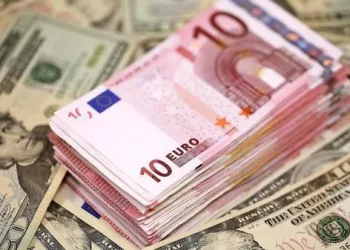(Reuters) – In a significant shift in the narrative surrounding the European Central Bank‘s (ECB) monetary policy, ECB board member Isabel Schnabel has called for an immediate end to the reduction of borrowing costs. Speaking at a conference at Stanford University on Friday, Schnabel argued that ongoing turmoil in the global economy is fueling price pressures, and there is a risk that inflation could exceed the bank’s 2% target in the medium term.
Over the past year, the ECB has been on an aggressive rate – cutting spree, slashing interest rates seven times as inflation rapidly retreated. Policymakers had already started laying the groundwork for another rate cut on June 5, which would take the deposit rate down to 2%. However, Schnabel, known as a policy hawk, firmly dismissed these expectations. She made a clear case that current interest rates are already low enough to not impede economic growth, advocating for keeping rates unchanged. “Now is the time to keep a steady hand,” Schnabel emphasized, stating that “the appropriate course of action is to keep rates close to where they are today – that is, firmly in neutral territory.”
This stance stands in stark contrast to the expectations of financial markets. Market sentiment currently indicates a 90% probability of a rate cut in June, with investors also anticipating one or two additional cuts in the following months. The disparity between Schnabel’s view and market bets highlights the complex situation faced by ECB policymakers. Schnabel pointed out that the inflationary forces in the short – term and medium – term are distinctly different. In the near term, factors such as lower energy costs, a strong euro, sluggish economic growth, and the high uncertainty stemming from the U.S. administration’s trade war could cause inflation to dip below the 2% target. However, she cautioned that monetary policy operates with long lags. By the time further policy easing would have an impact on the economy, the deflationary pressures may have dissipated, replaced by forces that drive up costs.
Looking to the medium term, Schnabel identified several factors that could boost inflation. Germany’s pledge to increase defense and infrastructure investment is expected to lead to a surge in government spending, which could have an inflationary effect. More significantly, trade fragmentation, a consequence of U.S. – imposed tariffs, could also drive up costs and prices. Schnabel even challenged the common belief that U.S. tariffs, in the absence of European retaliation, are net deflationary for the euro area. She argued that even without retaliation, the higher production costs transmitted through global value chains could more than offset the disinflationary pressure from lower foreign demand, making tariffs inflationary overall. Retaliation by the European bloc, as already outlined, would only exacerbate this inflationary process. According to Schnabel, by maintaining a steady approach and refraining from further rate cuts, the ECB can safeguard against a wide range of possible economic outcomes and be better equipped to handle various scenarios.
Related topics























